Whether you’re dealing with a rat issue at home or within your business premises, a rat infestation poses a range of serious concerns, from property damage to the spread of potentially life-threatening diseases.
It’s vital to act fast if you suspect rats have invaded your property. Acting promptly to have them removed is crucial to prevent them multiplying, preventing the escalation of the problem.
Call us for a quote on 01245 491 327 or Contact Us
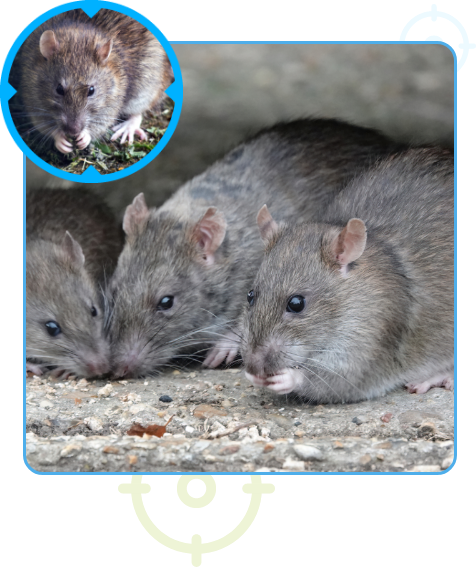
Our process
We provide a rapid and efficient residential pest control services for residential and throughout the Essex area. We guarantee a fast and friendly service with a same day response, including multi site contracts and regular prevention and maintenance visits.
Before commencement of any contract or treatment, we will first undertake a no obligation survey to determine the nature of potential issues, recommend treatment and prevention measures. On arrival, our pest technician will carry out an assessment to locate the pest issue, and will always discuss recommended treatment prior to proceeding.
We are always considerate of pets and will take necessary steps to ensure pest bait is placed in tamper resistant bait stations. Please advise our residential pest control staff if you have any pets. They will be pleased to answer any questions you may have regarding the proposed treatment.
Our commercial pest control technicians understand the need for discretion and all of our vehicles are unmarked to ensure privacy is maintained.
Upon completion, our pest technician will provide a detailed treatment report, together with details of any additional treatments that are required.
Common rat problem locations
Rats may be nesting inside or outside your property – the most common areas you may notice signs of a rat infestation are:
Outside
- Under Decking
- Compost heaps
- Overgrown shrubs
- Junk
- Log piles
- Ditches & Ponds
Inside
- Loft spaces
- Under floorboards
- Under stairs
- Under kitchen cupboards
How to identify a rat problem
There are several early indicators that your property might be harboring a rat infestation, here are some tell-tale signs to look out for:
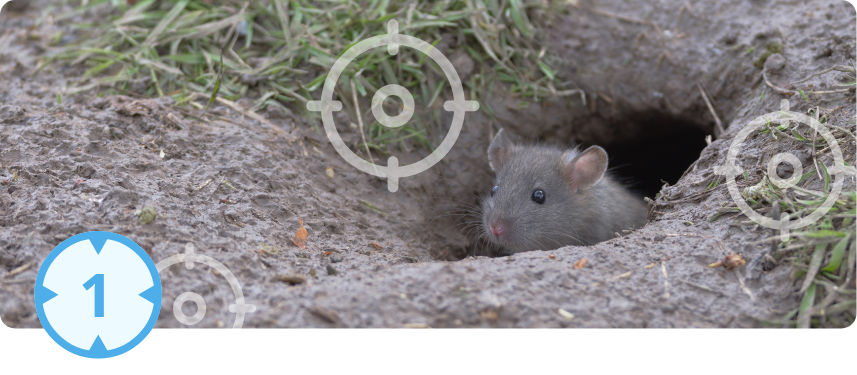
Rat Burrow
Holes of around 6-9cm in diameter around fences and buildings could well be part of a complex system of tunnels rats will use for nesting, food storage and shelter. In lofts, you may see holes in insulation, often with nearby droppings. If you see cobwebs within these holes then it’s unlikely the rats have been using that particular run./p>
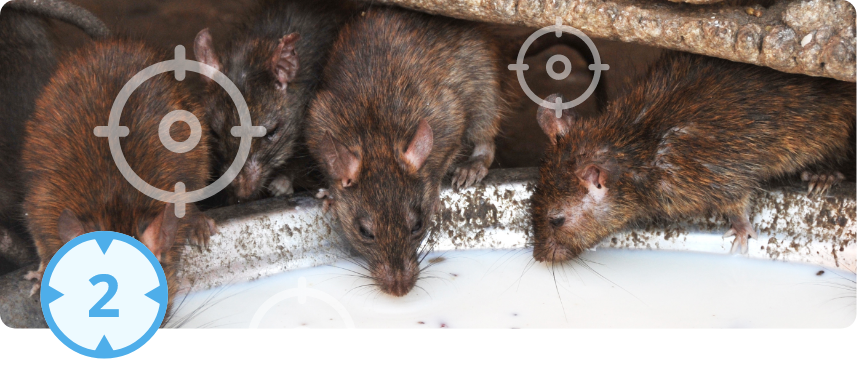
Noises
Listen for scratching sounds or scuttling in your loft or wall cavities, particularly noticeable during the quiet of the night. While these sounds may seem alarming, it's rare for rats to enter the main living areas of a home
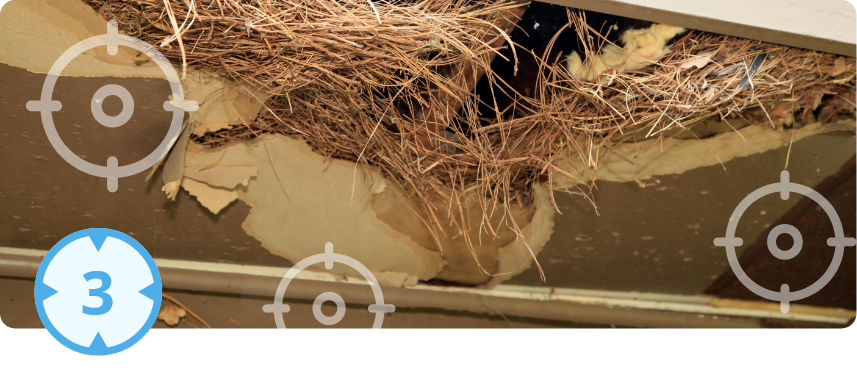
Damage to Property
Rats gnaw on hard surfaces to wear down their constantly growing front teeth resulting in noticeable damage. Look for teeth marks around damaged items, especially wood and plastics. Rats may also target cables, plastic water pipes, and electrical wiring, posing potential safety hazards.
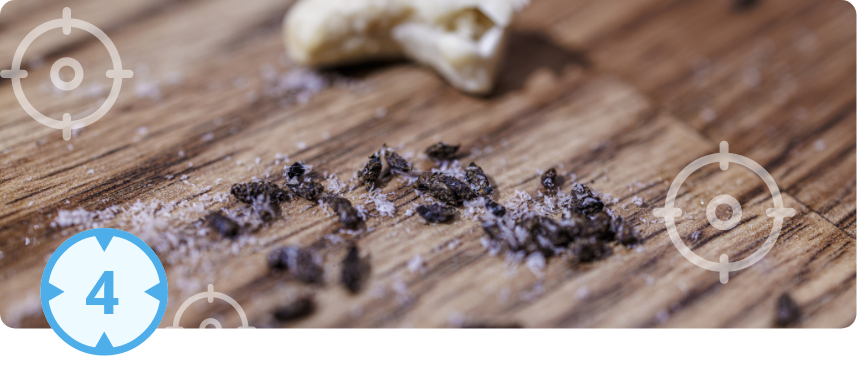
Droppings
Keep an eye out for brown/dark brown droppings, typically found in specific areas such as the loft , under floorboards, or near food sources. Rat droppings are spindle-shaped with tapered ends and are 2-3 times larger than a grain of rice. Exercise caution when handling droppings, as they can carry harmful bacteria like leptospirosis.
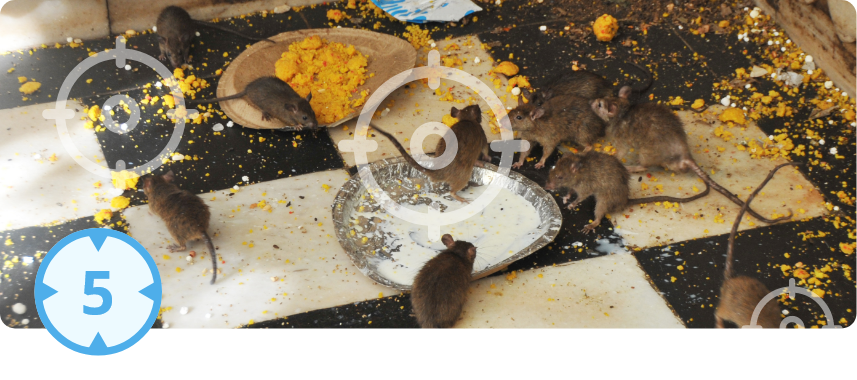
Smell
Rat urine has a strong ammonia-like smell that people often describe as a “putrid, sweet smell”. This is usually noticed in loft spaces, under floorboards, under kitchen units and sometimes even in an airing cupboard.
About rats
The most common rat in the UK is the Brown Rat. Like many rats, including the Black Rat, it serves as a carrier for various diseases such as Weil’s Disease, E. Coli, and Salmonella. Beyond the obvious health risks, rats pose a nuisance in buildings, causing damage as they gnaw through woodwork and even electrical wiring, potentially leading to fire hazards. They survive in sewers, buildings, streets and alleyways and will live almost anywhere humans do.

The Brown Rat
The brown rat typically weighs between 300 to 500 grams and inhabits burrows, although it may also take residence in cavity walls and loft spaces. Brown live in groups known as clans, with one dominant male leading the group. As omnivores, they have a varied diet and will eat almost anything they come across. Breeding throughout the year, female brown rats can produce up to five litters annually, with a gestation period of only 21 days. Each litter can range in size, with up to 14 offspring. Their maximum lifespan is around three years.

The Black Rat
The black rat typically weighs between 150 to 280 grams. They are smaller than brown rats, with comparatively larger eyes and ears, and longer, thinner tails . They are normally found in dockland warehouses, food processing plants, supermarkets, restaurants and other large buildings. As omnivores, they have a varied diet and will eat almost anything they come across. Breeding easily in summer and autumn, females can produce as many as five litters every year, with between five and ten young within each. Their life expectancy is approximately 12 - 18 months.
Rat proofing to prevent a rat infestation
Discovering rats in your home or work place can be distressing. Luckily there are many things you can do to prevent them:
- Store food items in metal or glass containers with tightly sealed lids.
- Reduce clutter which serves as hiding spots for rats.
- Regularly clean up pet food and bird seed debris, and store pet food in sturdy containers with sealed lids, ideally elevated from ground level.
- Keep your garden free from debris, especially if you have a compost heap; avoid including organic food waste, which can attract rats.
- Rats are proficient swimmers and can exploit damaged pipework in sewers and drainage systems. They will also gnaw at gaps to enlarge them for easier entry.
By implementing these measures, you can significantly reduce the likelihood of a rat infestation and safeguard your property from these unwanted intruders.
No job is too large or too small, so please contact us today for a no-obligation quotation.
Frequently Asked Questions
What causes rats to come into your house?
The main reason is to seek shelter for nesting. Anything that is soft and warm can be used. However, infestations happen when your home has structural as rats are nimble climbers which allows access to your home.
Other factors such as food being left out or leaving cluttered waste, can also play a part in it.
What do rats smell like?
Whilst a single rat may not produce a strong odour themselves, rat infestation will definitely provide you with a heavy scent that is distinguishable off ammonia.
How long do rats live?
The lifespan of a rat depends largely on whether it lives in the wild or in captivity. Rats that are kept healthy as a family pet can live up to 4 years. Rats in the wild only live 1-2 years – sometimes less.
What keeps rats away naturally?
While rats can be difficult to get rid of, there are some effective and natural ways to deter them from your property.
Some of the most effective natural rat deterrents include crushed pepper, peppermint oil, cayenne pepper, black pepper, cloves, citronella, eucalyptus, and chilli flakes.
How often do rats breed?
A female rat typically births six litters a year consisting of up to 12 rat pups, although 5-10 pups are more common.
Rats reach sexual maturity after nine weeks, meaning that a population can swell from two rats to around 1,250 in one year, with the potential to grow exponentially.
What does a rats nest look like?
A nest will sometimes look like a bird’s nest, but instead of leaves and twigs, they will typically incorporate any soft material that can be found around the home, such as paper products, cardboard, and even shredded cloth.
Call us for a quote on 01245 491 327 or Contact Us












